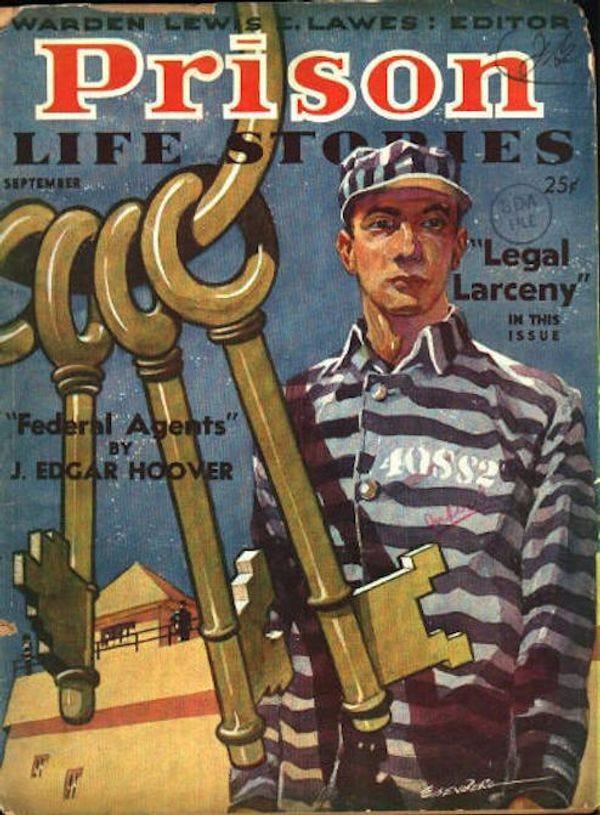No-Fun Justice Department Won't Let Courts Put Poor People In Debtors' Prisons, Boooo!
Check their wallets first
The U.S. Justice Department seems intent on taking all the fun -- or at least the profit -- out of state and local courts treating poor people as a source of (mostly) uncomplaining revenue. The DOJ Monday told states' top court officials to knock it off with policies that seek to extract ever-increasing fees and fines from people who can't pay for minor violations:
In a letter to chief judges and court administrators, Vanita Gupta, the Justice Department’s top civil rights prosecutor, and Lisa Foster, who leads a program on court access, warned against operating courthouses as for-profit ventures. It chastised judges and court staff members for using arrest warrants as a way to collect fees. Such policies, the letter said, made it more likely that poor people would be arrested, jailed and fined anew -- all for being unable to pay in the first place.
[contextly_sidebar id="2RZjiaNA9rwtwEGtvIgvJ12gZfeBxzg4"]The DOJ warning grew out of the department's investigation of the police and courts in Ferguson, Missouri, which operated more as a revenue-extraction scheme than as a system of justice, if you can imagine that. Ferguson certainly didn't originate the practice, which has been around for years, but they ran a remarkably efficient shakedown racket.
The DOJ would like cities and states to stop using selective prosecutions as an ATM for local governments, or as a hurdle (unconstitutional of course) people must cross before defending themselves in court:
Ms. Gupta said that in some cities, hefty fines served as a sort of bureaucratic cover charge for the right to seek justice. People cannot even start the process of defending themselves until they have settled their debts.
“This unconstitutional practice is often framed as a routine administrative matter,” Ms. Gupta wrote. “For example, a motorist who is arrested for driving with a suspended license may be told that the penalty for the citation is $300 and that a court date will be scheduled only upon the completion of a $300 payment.”
[contextly_sidebar id="PL9NvH4kuV54RWHI52FW3UHJ7OYkDFX3"]See, for instance, Wonkette's recent piece on Texas's "Great Warrant Roundup," an open grab for revenue in a state that would never dream of raising taxes, which hurts the economy. Texas is of course happy to throw working poor people into jail in the hope of collecting fines for minor traffic violations which they can't pay in the first place. It's not like the economy could ever be hurt when someone loses their minimum wage job after a jail stint for missed payments on a lane-change violation. Assuming theysurvive being arrested for changing lanes without signaling.
Ever the killjoy, Gupta reminded state justice officials that "courts were obligated to consider whether defendants were able to pay their fines," and also said judges should avoid suspending drivers' licenses for unpaid fines:
Doing so, she wrote, made it harder for people to get to work and to court, and made it more likely that they would fall further behind on their payments or face new penalties for missing court appointments.
Cause and effect, how does it work? To back up the "Yeah, don't do that" message, the Justice Department also announced it would make available $2.5 million in grants to help court systems get their act together. But once they've reformed, the courts won't be such great revenue sources, so why would anyone go for that deal?
Not that anyone's too riled up about local governments systematically making bank off poor people, because Law-N-Order always serves as a great cover: as one especially bright Facebook commenter put it in reply to our story about Texas's revenue-enhancing crackdown on the poors, "Seriously, they're arresting criminals who cares" [sic]. We have to protect society from all those scruffy jaywalkers, Mr. Tough On Crime.
[contextly_sidebar id="e6cCZb9XOMBLRfRofm9M6KRXuZeMzPkV"]What we'd like to know is why anyone in Barack Obama's Department of Justice is still doing any work. Don't they know he's not allowed to do anything involving courts in the final year of his term?
[ NYT ]



